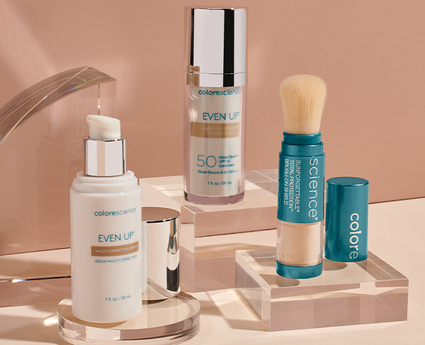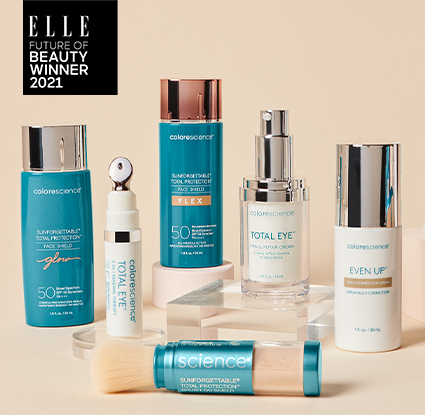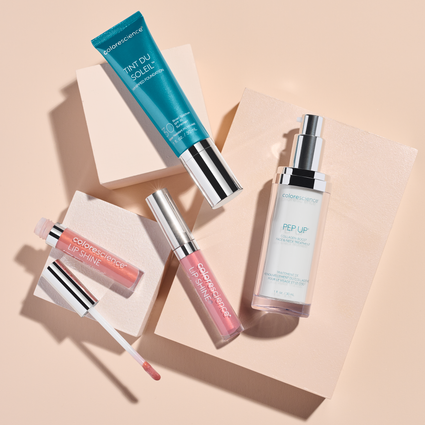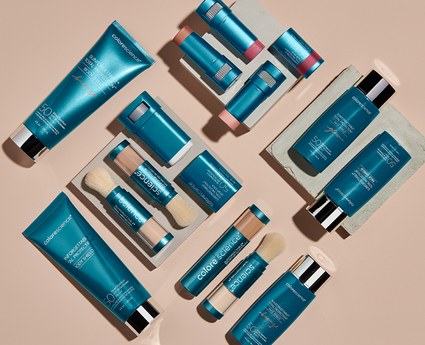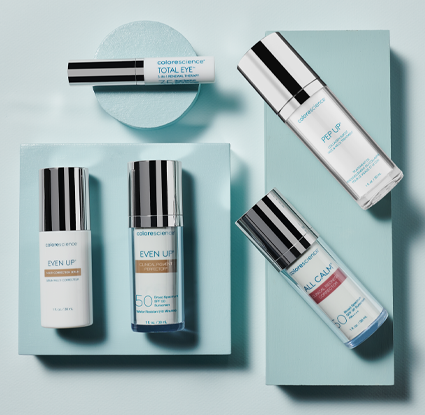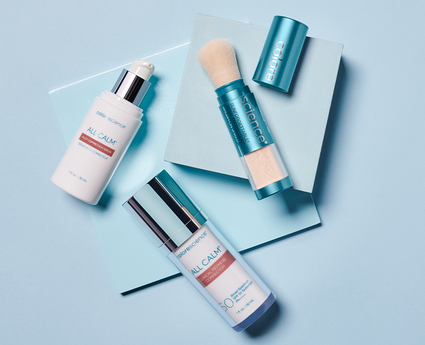What Is a Primer? Everything You Need to Know
What is primer? Primer is a cream you put on under your makeup for the smoothest application and long-lasting wear.
Seeing your makeup slowly melt off the day can make you self-conscious. But primer can help! Primer can help improve the lasting power of your foundation, eye shadow, blush, and more, so you can look your best all day long.
So what’s the best primer, and how do you use it? There are a lot of different primers out there that might cater to specific skin types or concerns from a wide variety of brands.
To help you find the right one for you, we’ve created a makeup primer guide that goes far beyond answering, “what is primer?” and covers the benefits and instructions for use. Keep reading or use the links below to learn more about makeup primer.
- What Is Makeup Primer?
- Do You Need Makeup Primer?
- Benefits of Primer
- How Do You Use Primer?
- What Is the Best Makeup Primer?
What Is Makeup Primer?
Primer is applied to the skin to make it smooth before applying your makeup. Makeup primer can be a cream, gel, or powder.
The main goals of using primer are:
- Create a smooth canvas
- Improve makeup coverage
- Extend makeup wear
Primer can also help you better match your foundation by creating an even tone across your face.
In other words, primer makes makeup easier to apply evenly and keeps it that way.

Are There Different Types of Primer?
Like any other kind of makeup product, there are a number of different types of primers.
Which one is best for your needs? In most cases, the best strategy is to check the label to see whether the primer caters to a specific skin type or condition. Some are meant for everyone, while others may be best suited for those with specific skincare needs.
Some of the most common primer options include:
- Mattifying primer: This type of primer can be used to balance out oily skin. The goal is to reduce shine so that your makeup has a more even tone.
- Color correcting primers: These use specific hues to even out skin tones so that the makeup has a uniform color on every part of your face.
- Brightening primers: Brightening primers are meant to add a glow to dull skin without making it shiny or oily looking.
- Hydrating primers: This type of primer caters to those with dry skin. By adding moisture, these primers improve texture and help the makeup adhere to your skin better.
- Blurring primers: These primers are used to hide blemishes, large pores, and rough textures. They smoothen out the skin, making even makeup application easier.
- Bronzing primers: Bronzing primers can help you capture that sun-kissed, lightly tanned look without exposing yourself to the sun.
- Eye and mascara primers: These primers are used on the eyes and are specifically made to be safe for these areas. Mascara primers can make the eyelash more curly and look longer, while eye primer is used before eye shadow to make the colors more vibrant.
For the best results, primers should have hydrating and nourishing properties. Note that if your primer doesn’t have SPF, you should always apply sunscreen over your makeup.
Do You Need Makeup Primer?
While you don’t necessarily need primer, it can be an excellent addition to your makeup toolkit.
Primer gives your makeup a more polished finish and creates an even surface for you to work with. It can also act as a barrier between your skin and heavier makeup. This can help prevent irritation and breakups from ingredients that might otherwise clog your pores.
If you have sensitive skin, want a smooth surface for makeup application, or need your makeup to last a long time, primer would likely be a worthwhile investment.

There are some situations when primer is almost considered essential. For example, if you are attending a wedding, you need your makeup to last you the entire day and night. Since you will have minimal opportunities for touch-ups, primer can be a game changer.
You might be thinking, “doesn’t makeup age your skin?”. We can see why you'd be apprehensive about adding something else to your routine. Some makeup can cause dryness or make your skin more oily, which could lead to clogged pores or premature wrinkles.
If this is a major concern of yours, a good primer can help you create a barrier that helps protect your skin.
All in all, primer isn’t exactly a necessity for everyone, but it’s useful for makeup wearers of any age who want to achieve the most flawless look possible.
Benefits of Primer
What is primer makeup good for? There are many benefits to wearing primer. You don’t even have to wear it with makeup. When you wear it alone, you can still enjoy many of the protective, smoothing benefits.
Here are the reasons why you should consider using a primer.
- It makes the surface of your skin smoother by providing a buffing effect for pores and blemishes.
- Good primers will help your makeup last longer, meaning you’ll need fewer touch-ups throughout the day.
- Primer helps prevent oily skin from looking shiny, even when it’s hot outside.
- Primers provide a more even skin tone, even if you struggle with hyperpigmentation. Blemishes will also be less visible when you wear makeup.
- Under makeup or on its own, primer makes your skin look more radiant, helping you achieve a healthier and more youthful-looking complexion.
- Quality primers often have sunscreen and moisturizing properties, which are essential for good skin care.
- Primers can add a barrier between your skin and makeup to help you avoid clogged pores and irritation.
- Primers with SPF can help protect your skin against the sun's damaging UV rays, which can contribute to early aging and increase your risk of skin cancer.
To enjoy these benefits, you want to ensure that you buy a high-quality primer that provides protection without harming your skin.
How Do You Use Primer?
Okay, so we’ve answered, “what is primer?” but how do you use it? We’ve outlined the basics of how to use primer so you can get the best possible results.
Every skin and cosmetic application routine should start with the same step: cleansing your skin. This is a crucial step that will help you get rid of any residue from previous makeup applications and debris that may have found its way onto your skin.
Starting with a fresh canvas is key when you want your makeup to look like a work of art.
Next, apply any peptide serum and moisturizers. Not only are they great for those with dry skin, but these products can also help your skin absorb and hold onto your primer.
The next layer should be the primer. It’s best to apply the primer in a circular motion. Start at the center of your face and move outward.

Many people prefer to use their fingers for the application because it helps the primer melt evenly and absorb into the skin. However, some people use a makeup sponge instead. Both options are effective, so it comes down to a matter of preference.
Pause for a minute or two to ensure the primer has fully absorbed into the skin. Once it is, you're ready to start applying your makeup.
What Is the Best Makeup Primer?
A good primer should provide all the benefits we've mentioned.
But when you’re shopping for a primer, you also want to consider your specific skincare needs. For example, do you have oily skin? Are you looking to add a bit of color to your skin tone? These questions will help you narrow down your options.
One thing to keep in mind that might not be obvious is avoiding scented primers. Primers that smell good might seem like a fun idea, but they likely contain fragrances. These fragrances typically include harmful chemicals that can irritate your skin.

Speaking of which, you always want to check the ingredients for any makeup product you buy; this includes primers. Check for any chemicals or ingredients you might be sensitive to.
For example, silicone can help extend the wear of primers. However, it can also trap oils and debris in your skin, which can lead to breakouts.
One last thing to look for in your primer is SPF. Primers with SPF can help protect your skin from sun damage. That said, it’s always important to reapply sunscreen every two hours, so you can’t just put primer on and be good to go for the whole day.
Perfect Your Complexion & Extend Your Makeup
The best primers protect your skin and extend the lifespan of your cosmetics. You should always look for products that offer the key benefits you need while also providing general hydrating and protective properties.
Colorescience primers are made from gentle, safe ingredients and include SPF. Shop our versatile collection of makeup primers to find one that caters to your skincare concerns.

